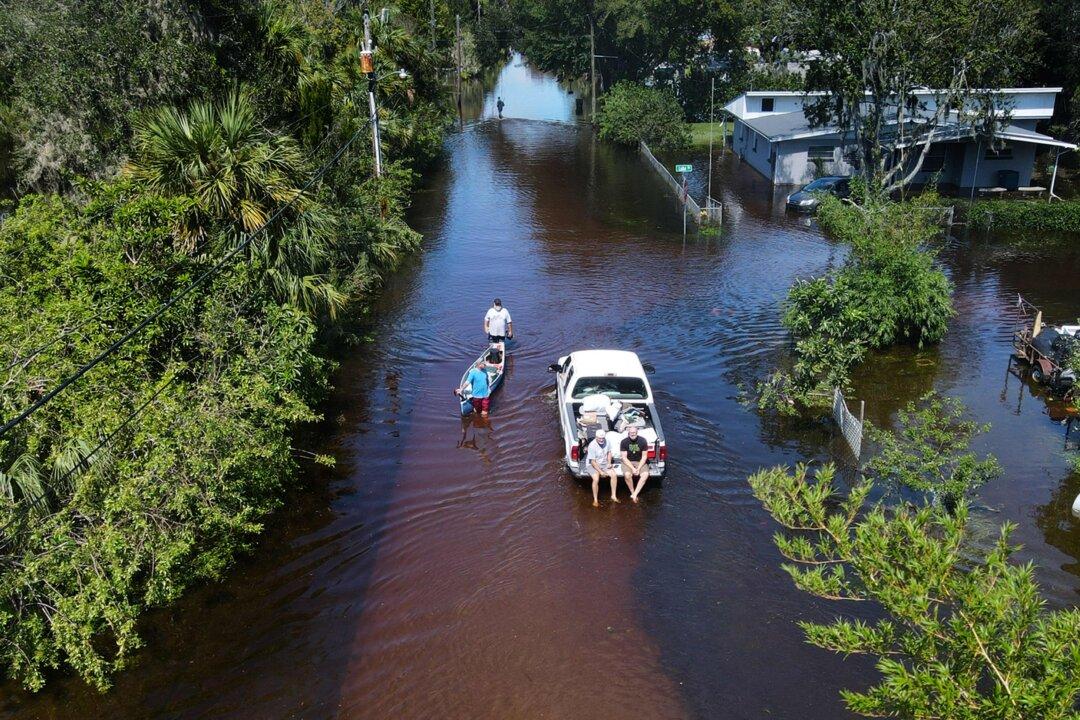Firefighters in Florida are dealing with a new challenge in the wake of Hurricane Ian—waterlogged electric vehicle (EV) batteries erupting in flames.
Florida’s chief financial officer and state fire marshal, Jimmy Patronis, took to Twitter on Oct. 6 to warn of the increased numbers of incidents in which electric vehicle batteries have corroded amid the storm, prompting fires to begin.




